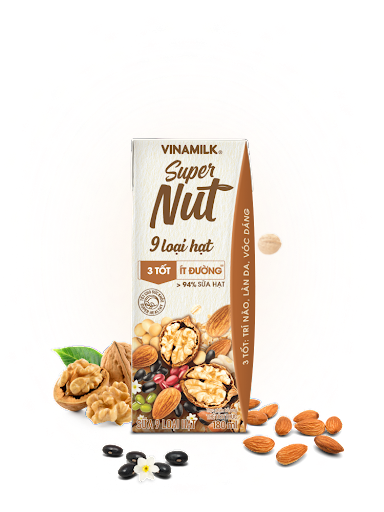More and more people are turning to Yoga to improve their physical and mental health. Besides exercise, a suitable nutritional regimen will help you quickly feel the effectiveness and benefits that Yoga brings. In this article, we will introduce to you a scientific diet when practicing Yoga that ensures adequate nutrition.

Reference Online weight loss fat burning course
1. Nutrition principles when practicing Yoga
For the best effectiveness of Yoga practice, here are the nutritional principles that you should understand.
1.1 Meals when practicing Yoga need to be divided scientifically
When combining a weight loss diet with Yoga practice, it is important to consider meals before and after exercise. Before starting a workout session, eating a light meal helps you increase calorie burning, providing energy for the entire workout session, turning your body into a powerful "engine" to burn fat. If you decide not to eat anything before working out, your body will likely convert your muscles into an energy source. As a result, you may feel tired, have headaches, fatigue and will not achieve the desired weight loss results.
1.2 Mechanism of weight loss when practicing Yoga
The calorie deficit mechanism is an important principle when losing weight. You need to intake less calories into your body than the amount of calories you use (consume) every day. This can be done by reducing calories through your diet or increasing physical activity. This is a mechanism that any person practicing any sport with the need to lose weight must follow to achieve the desired results.
2. Diet when practicing Yoga is nutritious and scientific
2.1 Apply Satva food
For yoga practitioners, Satva foods are considered the purest foods, helping to nourish the body and mind. It is believed that Satva food will help keep the human body healthy, while soothing and purifying the mind and spirit of the eater.
Satva food includes foods such as rye bread, fresh vegetables, butter and cheese, legumes, nuts, sprouted seeds, herbal tea and honey, plant milk

2.2 Vegetarian diet
Those who are practicing yoga need to supplement a lot of green vegetables to support and improve the digestive system. At the same time, you should also minimize animal meat dishes to avoid the accumulation of toxins in the body, causing diseases such as cancer, gout, cardiovascular disease, etc. Therefore, a vegetarian diet rich in green vegetables is recommended. is a suitable choice for yoga enthusiasts.
2.3 Use organic foods
When practicing yoga, you need to be more careful in choosing daily food. Specifically, you need to eat fresh, chemical-free foods to ensure your body is not contaminated with toxins, to better support the training process. To achieve the best workout results, try to use organic foods to prepare your daily dishes!
2.4 Food must always be clean and fresh
In the nutritional regimen for yoga practitioners, the freshness of food is always one of the factors that need to be given top priority. Accordingly, their daily food should be fresh and clean. Yoga practitioners need to especially avoid consuming processed, frozen, pre-packaged foods and especially leftovers that have been left out for days.
2.5 Eat at a certain time each day
Eating at the same time and maintaining it every day will help your body get used to the regime and improve digestive function. When practicing yoga, you need to have a strict eating schedule, eat on time and at the right meals so that your body can best absorb nutrients.
2.6 Meal spacing
In your diet, you should eat your main meals before practicing yoga or about 2 hours before going to bed. Food takes time to digest when it enters the body. If you eat too close to exercise or bedtime, the food cannot be digested in time, causing intestinal problems and even the risk of obesity.
2.7 Limit the use of drinks containing caffeine or alcohol
While practicing yoga, it is better to abstain from tea, coffee, tobacco, alcohol, and alcoholic beverages. At the same time, you also limit the consumption of foods and drinks containing artificial sweeteners.
3. What should you eat before and after practicing Yoga?
3.1 Before practicing Yoga
Before practice, yoga practitioners should supplement:
- Banana: contains vitamins and minerals that help beautify the skin and keep in shape effectively. You can eat bananas with a little salad or drink a smoothie to limit blood sugar drops.
- Fruit smoothie: helps supplement essential nutrients and moisture for the body. You can combine many types of fruits together to make the smoothie more nutritious.
- Cereals, dried fruit, nuts.
- Berries are rich in antioxidants, fiber and vitamins.
- Nuts such as almonds, walnuts, cashews,... or plant milk extracted from those nuts.
- Yogurt.

Especially yogurt, because this is a very good support food for eating before practicing sports, not just Yoga. If you are interested learn more about the topic What are the effects of eating yogurt?? To apply to your own pre-workout meal.
3.2 After practicing Yoga
After practicing yoga, you can add the following foods to supplement energy and nutrients for your body:
- Fresh fruit juice.
- Fresh vegetable salad to supplement vitamins and energy.
- Vegetable soup.
- Green tea helps increase blood circulation and replenish the body with antioxidants.
- Whole grain toast with egg whites to supplement protein for the body.
4. Some things to note during yoga practice that you should know
- You should start training with a stable body (not full, not hungry). You should only practice yoga 1.5 - 2 hours after eating.
- At each meal, you should only eat half of your stomach for better digestion, and don't eat too much. If necessary, you can divide into several meals, arranging them far apart.
- 30 minutes before exercising, you can snack on some sweet potatoes, fruit or a little honey mixed with warm water to avoid low blood sugar during exercise.
- Limit eating meat, fish, and eggs. Instead, eat more milk, butter, yogurt, vegetables, fruits, cheese, beans, nuts, etc.
Recently, we introduced to you a diet when practicing yoga that ensures nutrition and science. Always remember that besides exercise, nutrition is also very important, so don't neglect your diet!
Hopefully Nguyen's sharing will be useful in your Yoga practice and weight loss process. Besides, there are also many articles about health and Yoga at Nguyen's blog, especially Youtube channel Nguyen has many other yoga exercises for weight loss and fat burning, please follow and look forward to it with Nguyen!



